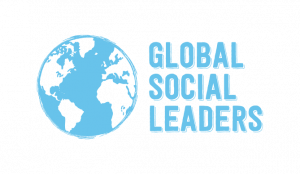The Red Padding Project (TRPP) is an entirely student run initiative based in Delhi, India. After connecting with GSL via Instagram to tell us all about their work ‘developing an intersectional and gender inclusive understanding of menstruation,’ we are delighted to be able to share their story with you today.
The project’s founder, Aarushi, worked with both the ADIRA Foundation and the Red Lotus Project (both of which have taken part in GSL!) before setting up TRPP. Their journey provides a great example of how anyone with passion and determination can start a social action project.
We hope you enjoy! If you are interested in sharing your story with us for the GSL spotlight, please email social.leaders@future-foundations.co.uk
The Red Padding Project started from Aarushi’s experiences of working as a volunteer in several similar student-run initiatives aimed at countering menstrual poverty in India.
While working with these organisations, she identified 2 key gaps:
- Most organisations focused on abled and women identifying menstruators
- They only carried out distribution of sanitary pads (disposable or otherwise), without taking into account the unique circumstances of the community or giving them a choice in the matter
TRPP aims to change this reality by developing a gender inclusive and intersectional understanding of menstruation while advocating for sustainable menstruation among underprivileged menstruators in India. We aim to identify and bring to light the unique menstrual experiences and concerns of communities whose experiences either get ignored or generalised such as refugees, sex workers, trans men etc.
TRPP’s cornerstone lies in groundwork. Before going forward with any distribution drive or awareness session, we first aim to meet the members of the community to get a sense of their menstrual experiences and the facilities available to them so as to decide which sustainable menstrual product would be most suitable to their needs. Once we have gotten a sense of their situation, we decide which menstrual product suits their needs best and create a tailored awareness session on menstrual health for them. We also make it a point to procure the sustainable menstrual products only from rural women self help groups or trans men worker units that we are in contact with.
Other than this, we are in the process of establishing a cloth pad empowerment model from April/May 2022 wherein we will be buying DIY cloth pad kits from trans men worker units and using these to teach Afghan refugees and sex workers how to make cloth pads. We will then be buying the final pads that they make every month as well. In this way, we will be effectively supporting three communities and hopefully breaking the stigma that exists in their communities around periods.
The journey so far has been full of rewards and challenges. The greatest reward so far was when we got to interact with Afghan refugees regarding menstrual health and their lives in India. Despite an evident language barrier, we were able to fully understand each other due to our shared experiences of being menstruators. Every interaction with them serves to only motivate us further to achieve our vision.
In terms of challenges, the first conversation is always the toughest. I remember trying to talk to domestic workers in my neighbourhood about menstruation and was met with hesitation, falsified answers and even complete silence. It’s only after painstakingly establishing a rapport with these communities by visiting them weekly and giving them a platform to talk about their lives that now we can have candid discussions on menstrual cycles, menstrual health and even sustainable menstrual products.
For anyone starting their own project, here is my advice:
Surround yourself with like minded people. Building a core team in the start of your project is one of the most frustrating things to do but dedicate a lot of time and effort to it. Think about the kind of skill set you are looking for and how the division of work in your team will take place. It is only by building your team that you can build your project’s vision and thereby bring about meaningful change in your respective societies.








